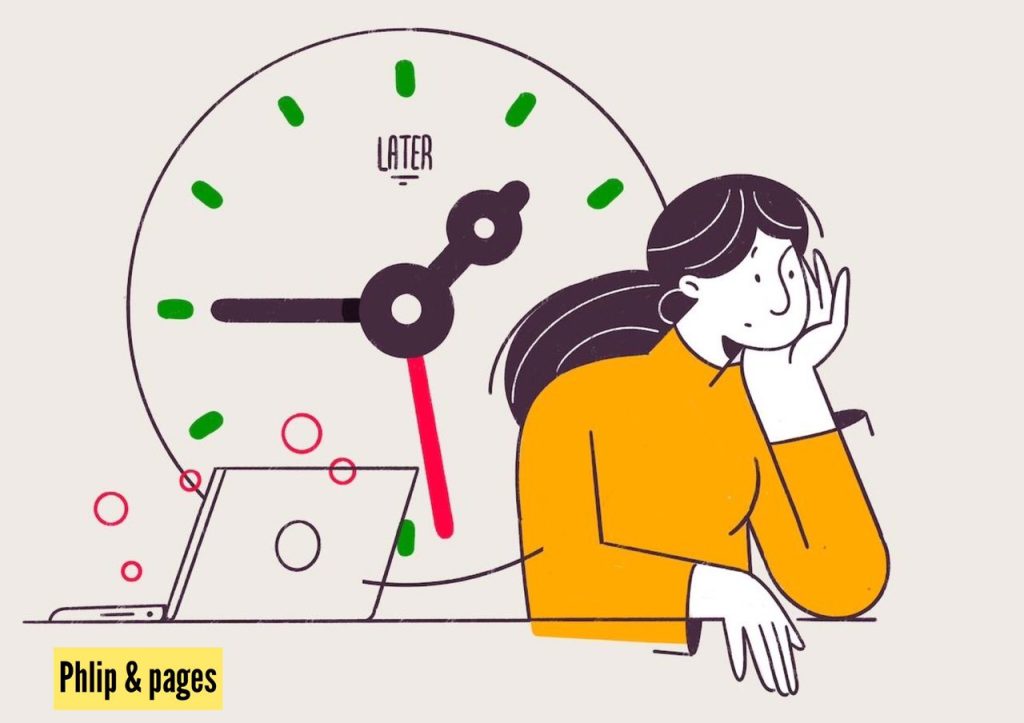Procrastination, the habit of postponing tasks or delaying important actions, is a common struggle for many people. It’s a behavior that can have significant consequences on personal and professional life. In this blog, we will delve into the causes and effects of procrastination, aiming to shed light on this common but often detrimental habit.
Causes of Procrastination

- Lack of Motivation: One of the primary causes of procrastination is a lack of motivation. When individuals don’t find a task compelling or rewarding, they are more likely to put it off.
- Fear of Failure: The fear of failing at a task can lead to procrastination. People often delay tasks because they are anxious about not meeting their own or others’ expectations.
- Perfectionism: Striving for perfection can be counterproductive. Perfectionists may procrastinate because they fear they won’t achieve flawless results.
- Poor Time Management: Inefficient time management skills can contribute to procrastination. When people don’t plan their tasks well, they may find themselves overwhelmed and more likely to delay them.
- Lack of Self-Discipline: Procrastination often occurs when individuals struggle with self-discipline. It’s easier to give in to short-term pleasure, such as browsing social media, than to stay focused on a challenging task.
Effects of Procrastination

- Increased Stress: Procrastination can lead to increased stress as deadlines approach. The pressure of completing a task at the last minute can be overwhelming.
- Decline in Productivity: Procrastination hampers productivity. When tasks are postponed, they accumulate, making it harder to catch up.
- Missed Opportunities: Procrastination can lead to missed opportunities, both personally and professionally. Delaying important decisions or actions can have long-lasting consequences.
- Negative Impact on Health: Chronic procrastination has been linked to negative health effects, including increased stress, anxiety, and even sleep problems.
- Damaged Reputation: Consistently missing deadlines or delaying commitments can harm one’s reputation, both in personal and professional relationships.
Overcoming Procrastination

Now that we understand the causes and effects of procrastination, let’s explore some strategies to overcome it:
- Set Clear Goals: Define clear and achievable goals for your tasks. Having a sense of purpose can boost motivation.
- Break Tasks into Smaller Steps: Divide large tasks into smaller, manageable steps. This can make them less overwhelming and easier to start.
- Prioritize: Determine which tasks are most important and tackle them first. This prevents you from spending too much time on less critical activities.
- Use Time Management Techniques: Explore time management techniques like the Pomodoro Technique, which involves working in focused intervals with short breaks.
- Develop Self-Discipline: Practice self-discipline by building routines and habits that promote productivity.
- Seek Accountability: Share your goals with a friend or colleague who can hold you accountable for your progress.
Conclusion

Procrastination is a common challenge that can hinder personal and professional growth. Understanding its causes and effects is the first step toward overcoming it. By implementing effective strategies and developing better habits, individuals can gradually reduce procrastination and lead more productive and fulfilling lives. Remember, overcoming procrastination is a journey, and small steps can lead to significant improvements over time.
















